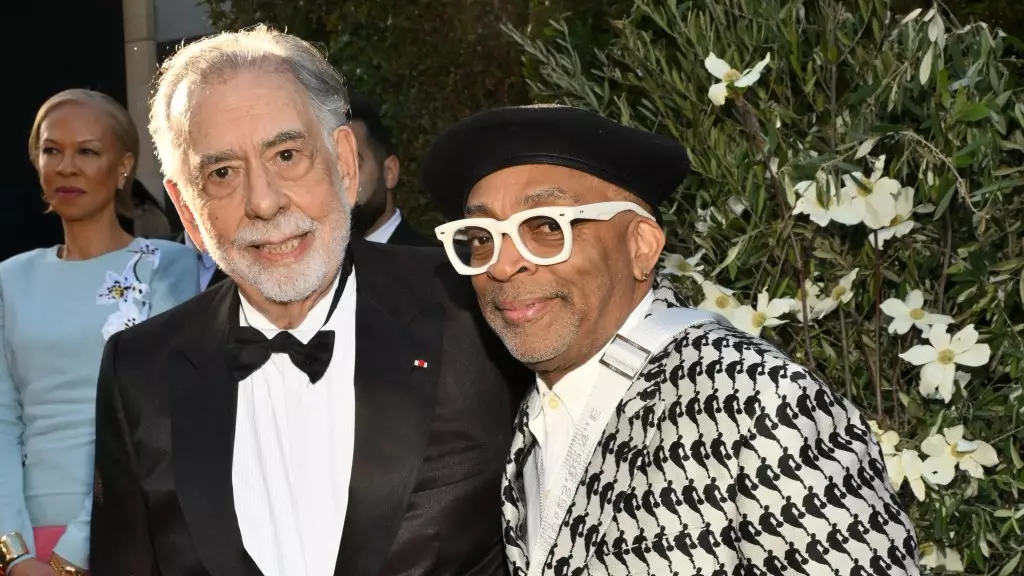In his recent heartfelt tribute to Francis Ford Coppola at the AFI Life Achievement Award ceremony, Spike Lee offered a glimpse into the profound effect Coppola’s work has had on his journey as a filmmaker. Lee’s nostalgia was palpable as he recounted eagerly waiting in line to watch “Apocalypse Now,” a film that not only redefined the war genre but also left a lasting imprint on the cultural landscape. The awe that Lee describes is something many film enthusiasts can relate to—experiencing a film that transcends mere entertainment to become a pivotal moment in their lives.
What stands out in Lee’s recollection is the raw and instinctive power of cinema; he recalls the visceral imagery of helicopters so vividly that it transports him, and presumably his audience, back to that moment. This sense of wonder encapsulates what it means to truly connect with art—it disrupts our expectations and expands our understanding of reality.
The Weight of Acclaim
Coppola’s legacy is not just defined by the accolades he has received but also by the indelible mark he has left on those who followed in his footsteps. The affection and respect Lee showed when he acknowledged Coppola’s influence exemplifies a fundamental truth in the film industry: the importance of mentorship and shared experiences among filmmakers. Coppola is revered not only as a cinematic innovator but also as a beacon for emerging talents, symbolizing the significance of cultivating relationships within the artistic community.
The gathering of such esteemed colleagues and collaborators—names like Steven Spielberg, Al Pacino, and George Lucas—during the tribute underscores Coppola’s stature in Hollywood. Each of these artists owes a piece of their journey to a man who dared to push boundaries, crafting films that are not only entertaining but also provoke thought and dialogue.
The Enduring Impact of a Filmmaking Icon
Coppola’s filmography is a testament to a master at work. His iconic works such as “The Godfather” trilogy and “Apocalypse Now” are frequently cited among the greatest films ever made, securing his legacy in cinematic history. However, what can sometimes be overlooked are Coppola’s other contributions, such as “Patton” and “The Conversation,” that explore complex characters and themes much deeper than surface-level storytelling.
It is also significant to note his unique ability to foster talent; his home became a hub for burgeoning filmmakers, a point Lee emphasized during his tribute. By screening uncut versions of films like “Cotton Club,” Coppola provided insights, mentorship, and validation to younger talents—allowing them to thrive in a competitive industry.
A Celebration of Influence and Art
Lee’s remarks serve as an important reminder of why we celebrate filmmakers like Coppola. They not only create cinematic masterpieces but also inspire a generation, fostering their passions and encouraging them to take creative risks. In an industry often driven by profit margins, the artistic integrity and commitment to craftsmanship that Coppola embodies shines like a beacon of hope.
The AFI Life Achievement Award celebrates not just the illustrious career of one man but the ever-evolving nature of cinema itself—with each new generation of filmmakers taking the torch from the giants before them. As Spike Lee demonstrated, the reverberations of Coppola’s influence will echo through the lives and works of countless filmmakers, shaping the future of cinema for years to come.
